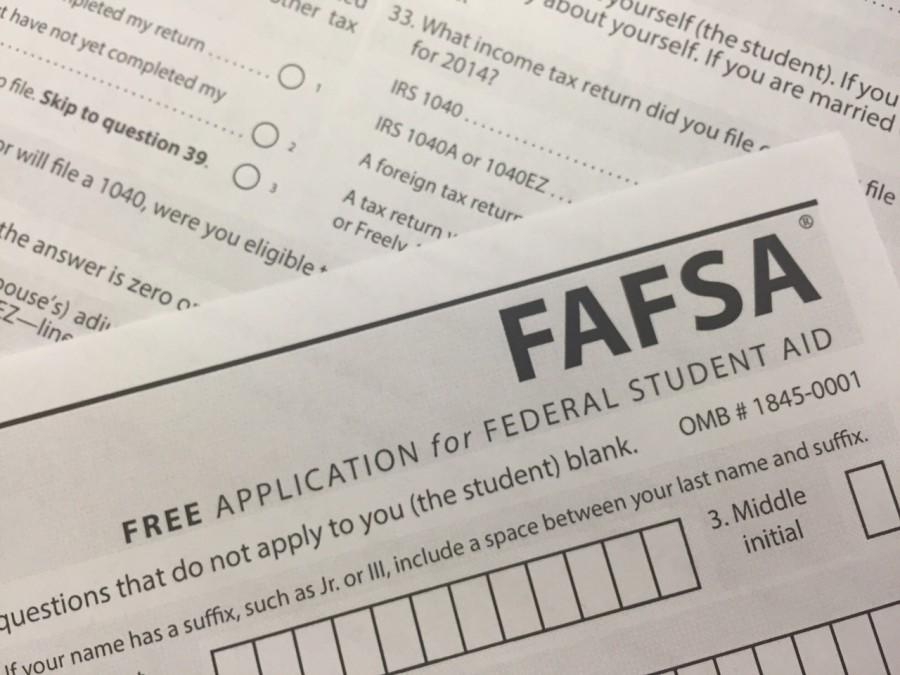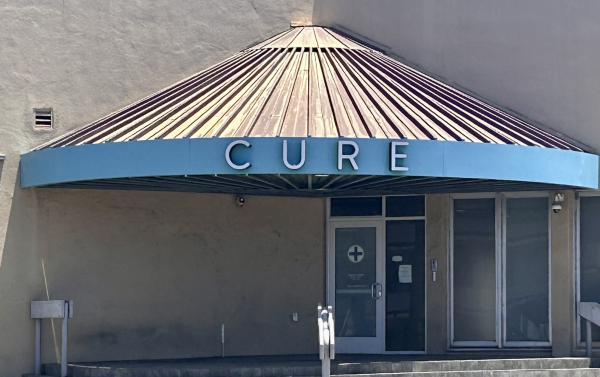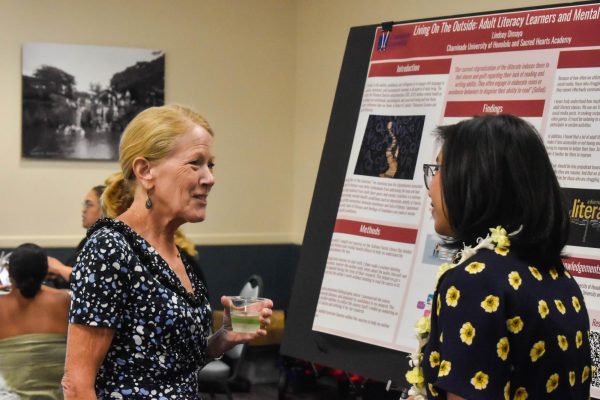2016 candidates take a stand on student loans
The rising cost of education may prove to be one of the hot topics in the upcoming 2016 presidential race.
October 19, 2015
The average college graduate will leave school with nearly $30,000 in student loan debt. With private institutions such as Chaminade University charging upward of $20,000 per year in tuition alone, student loan debt is a major concern for many Americans. The 2016 presidential election season is right around the corner, and Americans may be seeing a possible light at the end of the debt-paved tunnel.
“What used to be a method of getting ahead in life has now become a necessity,” said Ches Bond, a junior who is paying for school with military benefits. “Our country wants doctors, scientists, lawyers. We want people who can better our economy. That those people, in order to get to that point, they are essentially putting themselves in debt for years, decades, maybe their whole lives, just to get that opportunity.”
The proposed plans to attack student loan debt are varied but what the top presidential candidates of either party seem to agree on is that this issue needs to be reformed on a massive scale.
No two candidates have presented the same plan, but for the more than 40 million Americans struggling with outstanding loans, the fact that discussion is occurring could be a positive sign for the near future.
According to Democratic poll leader Hillary Clinton’s campaign website, her plans start with easing the burden of repayment. The proposed plan, which she refers to as the New College Compact, includes refinancing options, lowered interest rates and free community college. Clinton also seeks to hold states and universities accountable for maintaining state sponsored re-investment as well as the value of the degree itself.
Having a college degree was once an option for the best and the brightest rather than the requirement for all. Higher education has become less about educating young minds and more about running a multibillion dollar business. Universities across the United States are signing over diplomas to whoever is able to pass a few tests and, even more importantly, provide a signature on a master promissory note.
Between 2006 and 2015 Chaminade University tuition has risen from $7,225 per semester to $10,800. That is a nearly 50 percent increase over only eight years.
In a July 2014 interview with Katie Stanton, Twitter’s vice president of global media, Clinton spoke on the need for reform within the multi-billion dollar industry.
“It’s hard to relate the rise in cost to the actual product that has certainly changed somewhat but not so dramatically as to justify those costs.” Clinton said then. “Colleges and universities have to do more to keep costs down and do more on financial aid so people can come to college without having to bear the cost themselves. It’s going to take a lot of work because there’s a very strong institutional interest in keeping costs high.”
For Bond, a former corporal in the Marine Corps, the cost of education could be prohibitive for many potential students.
“I feel like you’re forced in a sense to take out student loans because being an 18-year-old coming out of high school i don’t see any other way of attending college unless your family is ridiculously wealthy,” he said.
Clinton’s current competition for the Democratic nomination is Vermont Sen. Bernie Sanders. Though he notes that Clinton’s plan is a good start, he has asserted that more far reaching changes need to be made to ensure the financial health of future generations.
During a May 19 press conference held in Washington, D.C. and published online by RobinHoodTax.org, Sanders presented the “College for All Act” that would pay college tuition by simultaneously reforming Wall Street.
For Hawaii-born hair stylist Miya Argent, 26, hearing of Sander’s plan to fund education has strengthened her support of the senator.
“I have been a Bernie Sanders fan for a while now and his Robin Hood tax just makes me support him even more,” said the Portland-based stylist who previously pursued degree in art history before leaving to attend cosmetology school. “It seems like a great way to fund education and hold banks more accountable.”
Sanders would use stock market transactions fees to fund his far-reaching plans for education reform.
“It has been estimated … that this legislation would raise up to $300 billion a year, more than enough to cover this program and leaving us with additional revenue to do all the other important things that need to be done in this country,” Sanders said.
The Vermont senator went on to point out how many developed countries have utilized transactional fees to successfully fund government projects.
“More than 1,000 economists have endorsed a tax on Wall Street speculation and today some 40 countries throughout the world have already imposed a financial transaction tax including Britain, Germany, France, Switzerland, China and many others,” said Sanders.
On the other side of the race are Republican frontrunners entrepreneur Donald Trump and neurosurgeon Ben Carson. Though neither have spoken on the issue to the lengths that their Democrat opponents have, both have made statements as to what role, if any, education reform will play if they win the presidency.
Trump, a Wharton graduate, has been outspoken on many issues plaguing American society, including the state of debt in the United States.
During an interview with The Hill that took place last July, Trump took the surprising liberal stance that the federal government should not profit from student loans.
“That’s probably one of the only things the government shouldn’t make money off,” he said. “I’ll see so many young people and they work really hard for four years. They borrowed money. Their parents don’t have much. They work all together and they mortgage their future.”
Though Trump has not gone into detail as to how he plans on financing education, he is one of the only Republican candidates that has addressed the issue to this extent.














